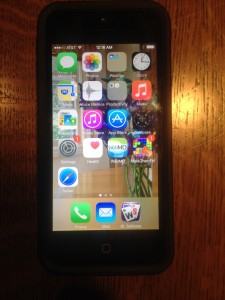“That drift may have nothing to do with your lesson and everything to do with a long night of gaming, followed by a morning with no breakfast.”
Some days you could be hammering gongs while dancing across the front of the classroom, rapping out a brilliant song you wrote about the events that led to the Boston Tea Party, and you still would not have the full class’s attention. “Kendra’s” eyes would droop, her head falling onto her desk, while glassy-eyed “Michelle” tapped Kendra’s shoulder. Michelle’s head would jerk every so often as she started to drift off next to Kendra. You can’t win this one. Both girls got maybe two hours of sleep.
Kendra spent the night texting and surfing the Internet. Michelle did the same, with a few hours of online gaming thrown in. Michelle wanted to know if Kendra was interested in Mike. Somehow they spent an hour on the crucially important topic of whether Mike was still interested in his last girlfriend. They shared details about Tomas and Mari, a doomed romance in Kendra’s opinion. They discussed a favorite reality TV show. They disagreed on whether The Walking Dead was better than Fear The Walking Dead. Etc. The night slipped way in a flurry of quick messages, punctuated with a few pictures of Mike.
According to the Pew Research Center,* “24% of teens go online “almost constantly,” facilitated by the widespread availability of smartphones.
Much of this frenzy of access is facilitated by mobile devices. Nearly three-quarters of teens have or have access to a smartphone and 30% have a basic phone, while just 12% of teens 13 to 17 say they have no cell phone of any type. African-American teens are the most likely of any group of teens to have a smartphone, with 85% having access to one, compared with 71% of both white and Hispanic teens.
Electronics can kill best the pedagogical efforts by degrees. An ever-increasing number of middle school and high school students have cell phones. They take those phones everywhere, including into classrooms that technically don’t allow those phones.
Eduhonesty: If Kendra has been nodding off, I strongly recommend you share your problem with her parents as soon as possible. Many parents are sleeping as all this electronic activity unfolds, resting in the arms of Morpheus while their kids are Snapchatting the wee hours away. You can’t solve the problem of the desktop computer in the bedroom maybe, but you and your students will be light-years ahead if you can get parents or guardians to seize those phones at night.
Adolescents often don’t know when to turn off the phone. Many kids would probably be happy to be hardwired to those phones. When students too often walk into class with that glazed look, I’d recommend calling home to suggest that parents confiscate their phones at night.
Sleep and food make or break more lessons than clever slide shows ever will.
*Teens, Social Media & Technology Overview 2015, Amanda Lenhart,

